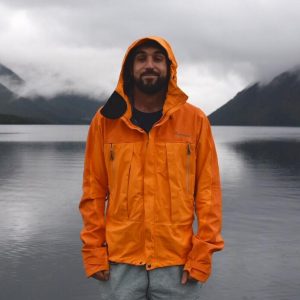A lot can be learned from studying birdsong, and new technology may be instrumental in the future of bird conservation.
The forest has language if you know how to listen.
There is the gobbledigook of tūī, the laughter of tīeke, the drunken slurs of kererū; that much we can recognise, but how much do we understand?
Ecologist Dianne Brunton has spent years analysing bird song with bioacoustic software, and says it is far more complex than we realise.
“It’s like human language exactly,” she says.
Brunton is particularly interested in studying dialects – where birds of the same species have slight variations in their song, depending on their territory or location.
Research has found that every bird has a unique voice, and that groups of birds within a territory can share a dialect, much like a neighbourhood.
While humans struggle to tell these dialects apart – or two birds, for that matter – recorded birdsong can be represented visually on a spectrogram, a graph that visually displays the frequency and time length of a sound. By analysing spectrograms, researchers can detect song variations that are impossible for humans to hear.
“Birds are four times better at distinguishing sounds than we are,” Brunton says. “On a spectrogram, you can stretch out the song to see the individual syllables and notes, and birds are able to detect these very subtle differences.”
Dr Isabel Castro also works with bioacoustics, developing software that analyses field recordings of birdsong and automatically isolates species or even individuals within a species.
She says modern research has proven the insult ‘bird-brained’ to be outdated.
“In the last 20 years, a lot of research has been done on why birds’ brains are different [to mammals], and what that means,” Castro says.
While birds typically have smaller brains than mammals, this doesn’t necessarily translate to intelligence. “Birds have more cells per area in the brain than mammals do, and they also have more nervous connections than most mammals – an adaptation to having a smaller brain,” she says.
Castro says she has worked with birds long enough to feel bilingual. When studying hihi for her PhD, she spent four years visiting a population on Kapiti Island, and got to the point where she would know their behaviour by their calls alone.
“I could tell you what they were doing without looking, and I’m sure that if I could understand them, they could too,” she says.
Castro’s software project, AviaNZ, is a work in progress, but its applications for conservation are enormous. When complete, it is hoped the software will quickly analyse hours, days, or even months of field recordings and isolate the calls of a desired species, but it isn’t proving easy.
“While the human brain can identify hundreds of birds by their sound, even at the same time, a computer has a hard time doing it,” she says.
Castro’s team is currently developing filters to remove atmospheric sounds and the calls of non-target species. If successful, the technology could prove instrumental in locating and measuring the density of a species – or even rediscovering those thought lost, such as the South Island kōkako.
Discoveries in the field of birdsong are frequent, but many mysteries remain including the reason birds sing a dawn chorus. Hypotheses include signalling good health to neighbours, and burning off excess energy before foraging begins.
Brunton believes the reconnection of social bonds is one of the more likely theories.
“Birds’ territories are jammed in with one another, so when they are singing first thing in the pre-dawn, they may be staking out their territory for the day, saying I’m still here, you can’t have my territory, I’m doing well,” she says.
Another mystery is the effect birdsong has on mental wellbeing.
“There is an interesting hypothesis that it’s linked to our evolution,” she says. “Birds go quiet when there is danger nearby, and people might subconsciously be queueing into that, so it puts us on alert.”
Castro wishes all Kiwis would realise how special our birds are, so they would be better protected.
“New Zealand is the land of birds – that’s what we’ve got, and they are extraordinary.”








